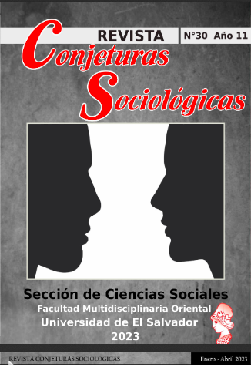Stratification in the academy, the case of the University of Guadalajara
Keywords:
Higher education, Stratification, Academy, Teachers, UniversityAbstract
Higher education institutions and the academic profession have been touched by the globalizing vortex and its effects. Modernization policies implied changes in institutional and academic work through policies and evaluation programs, incentives, and rewards, which has put in the highest value of research activities, therefore, the institutions and professors that focus on this activity, are the best evaluated in these programs, positioning them at the top of the pyramid of tertiary education; generating a stratification not only institutional, but among the teachers, differentiating the pyramidal base or the majorities as those who are not elite and because they focus on teaching, they cannot obtain more and better resources. A paradigm shift in academic assessment is required, where the teaching and research functions are put on the same scale for a holistic and fair development of the university in favor of society
Downloads
References
Altbach, P.G., Reisberg, L., & Rumbley, L. E. (2016). Tracking a Global Academic Revolution. In P. G. Altbach. Global Perspectives on Higher Education. Baltimore: Johns Hopkins University Press. pp. 15-28. (2)
Altbach, P.G. (2016). The logic of Mass Higher Education. In P. G. Altbach. Global Perspectives on Higher Education. Baltimore: Johns Hopkins University Press. Pp. 48- 72. (3)
Altbach, P. G., Reisberg, L. and De Wit, H. (Eds.). 2017. Responding to massification: differentiation in postsecondary education worldwide. Körber Foundation/Hamburg Transnational University Leadership Council, Bonn, pp. 9-13, 14-23 and 158-164
Altbach, P. G. (2016). Globalization and the Universities: Realities in an Unequal World. In P. G. Altbach. Global Perspectives on Higher Education. Baltimore: Johns Hopkins University Press. Pp.81-104. (6)
Altbach, P.G. (2016). The University as Center and Periphery. In P. G. Altbach, Global Perspectives on Higher Education. Baltimore: Johns Hopkins University Press. pp. 149-171. (7)
Altbach, P. G. (2016). The Globalization of Rankings. In P. G. Altbach. Global Perspectives on Higher Education. Baltimore: Johns Hopkins University Press. pp. 130-139. (9)
Altbach, P. G., Reisberg, L., & Rumbley, L. E. (2010). Teaching, learning and assessment. In Trends in global higher education: Tracking an academic revolution. Rotterdam, the Netherlands: Sense Publishers. pp. 111-122. (11)
Altbach, P. G., Reisberg, L., & Rumbley, L. E. (2010). The centrality and crisis of the academic profession. In Trends in global higher education: Tracking an academic revolution. Rotterdam, the Netherlands: Sense Publishers. pp. 85-90. (24)
Altbach, P. G., Reisberg, L. & Rumbley, L. E. (2010). Financing Higher Education. In Trends in Global Higher Education: Tracking an Academic Revolution. Rotterdam: Sense Publishers. pp. 65-74. (18)
Ben-David, J. & Zloczower, A. (1962). Universities and Academic Systems in Modern Societies, European Journal of Sociology 3, pp. 45-84. (4)
Bernasconi, A. (2008). Is there a Latin American model of the university? Comparative Education Review, 52(1). pp. 27-52. (30)
Enders, J. (2006). The academic profession. In Forest, J. and Altbach, P. G. (Eds.). International handbook of higher education. Dordrecht, the Netherlands: Springer. pp. 5-22.
Grediaga Kuri, R. (2001). Retos y condiciones de desarrollo la profesión académica en México en la última década. Revista Mexicana de Investigación Educativa, 15, 95–117.
Hazelkorn, E. (2011). Globalization and the reputation race. In Rankings and the reshaping of higher education: The battle for world-class. Basingstok, UK: Palgrave MacMillan. pp. 6-38.
Leask, B. (2015). Why Internationalize the Curriculum? In Internationalization of the Curriculum. London: Routledge. pp. 16-25.
Merton, R. K. (1973). The sociology of science. Theoretical and empirical investigations. (1st ed.). Chicago. EUA: University of Chicago Press.
Moreno, C. I. (2017). Las reformas en la educación superior pública en México: rupturas y continuidades. Revista de la Educación Superior, 46 (182). pp. 27-44. (32)
Salmi, J. 2017. The contribution of tertiary education. In J. Salmi, The Tertiary Education Imperative. Boston: Sense Publishers. pp. 31- 69. (1)
Salmi, J. (2009). The challenge of establishing world-class universities. In J. Sadlak and N. Liu (Eds.) The world-class university as part of a new higher education paradigm. Cluj, Romania: Cluj University Press. pp. 23-68. (8)
Sandel, M. (2020). The sorting machine. In the Tyranny of merit: What´s become of the common good? (pp. 55-68). (12)
Universidad de Guadalajara. (2022). Coordinación General de Planeación y evaluación . Obtenido de Numeralia: https://cgpe.udg.mx/informacion-institucional/numeralia-institucional
Universidad de Guadalajara. (2022). Estatuto del personal académico de la Universidad de Guadalajara. Obtenido de https://secgral.udg.mx/sites/default/files/Normatividad_general/EPA%20%28Abril%202022%29.pdf#:~:text=El%20presente%20Estatuto%20regula%20las,de%20Guadalajara%20y%20su%20Reglamento.
Vinck, D. (2014). Ciencias y sociedad. Sociología del trabajo científico. Argentina: Gedisa
Downloads
Published
Issue
Section
License

This work is licensed under a Creative Commons Attribution-NonCommercial 4.0 International License.
Los autores continúan como propietarios de sus trabajos, cediendo de manera no exclusiva los derechos de difusión a la Revista Conjeturas Sociológicas bajo los estándares de la Licencia Creative Commons Atribución No Comercial 4.0 Internacional (CC BY NC 4.0).





